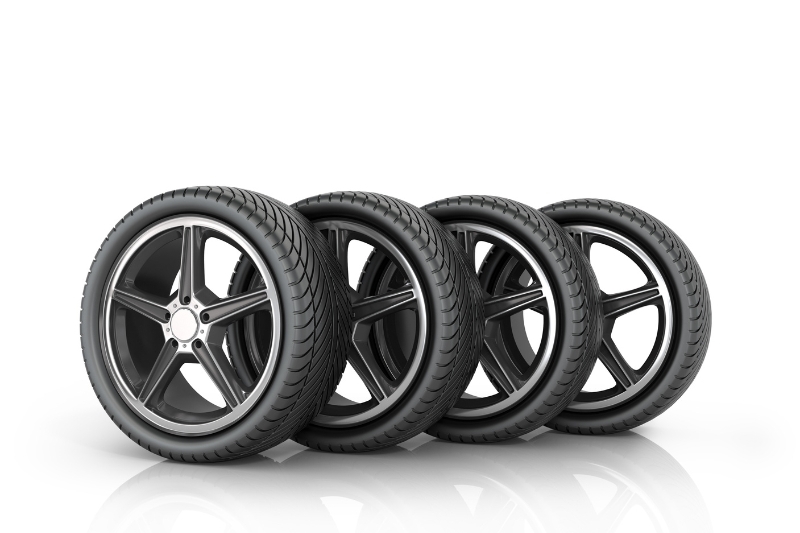The wheels are not only a crucial functional component, but they also play a significant role in the overall aesthetics of your car. In this comprehensive guide, I will delve into the world of car wheels, exploring the different types available, the factors to consider when making your selection, and the impact of wheel choice on performance and style.
Understanding the importance of choosing the right wheels
Selecting the appropriate wheels for your car is not just about finding the most visually appealing option. It’s a decision that can have a profound impact on your vehicle’s handling, ride quality, and fuel efficiency. The right wheels can enhance your driving experience, improve safety, and even increase the resale value of your car. Conversely, the wrong wheels can compromise your car’s performance, leading to issues such as poor braking, uneven tire wear, and reduced stability.
Different types of car wheels available
When it comes to car wheels, there is a vast array of options to choose from. From classic steel wheels to high-performance alloy rims, the market offers a diverse selection to cater to every driver’s preferences and needs. Some of the most common wheel types include:
- Steel Wheels
- Alloy Wheels
- Forged Wheels
- Cast Wheels
- Composite Wheels
Understanding the unique characteristics and benefits of each wheel type will help you make an informed decision that aligns with your driving style and the intended use of your vehicle.
Factors to consider when choosing car wheels
Selecting the perfect wheels for your car involves carefully weighing several key factors. These include:
- Wheel Size: The diameter and width of the wheels can significantly impact your car’s performance, handling, and overall aesthetics.
- Wheel Material: The choice between steel, alloy, or composite wheels can affect factors such as weight, strength, and corrosion resistance.
- Wheel Finish: From glossy chrome to matte black, the finish of your wheels can dramatically change the look and feel of your car.
- Wheel Offset: The positioning of the wheel in relation to the car’s suspension can influence handling, stability, and tire clearance.
- Budget: Determining your budget upfront will help you explore options that fit your financial constraints while still meeting your performance and aesthetic requirements.
By carefully considering these factors, you can ensure that you select the best wheels for your specific needs and preferences.
The impact of wheel size on performance and aesthetics
The size of your car’s wheels can have a profound impact on both its performance and its appearance. Larger wheels, for instance, can improve handling and responsiveness, while smaller wheels may enhance ride comfort and fuel efficiency. However, the wrong wheel size can also lead to issues such as reduced ground clearance, altered speedometer readings, and even potential rubbing or clearance problems.
When it comes to aesthetics, the wheel size can dramatically alter the overall look and stance of your vehicle. Larger wheels can give your car a more aggressive, sporty appearance, while smaller wheels may lend a more subtle, refined look. Striking the right balance between performance and aesthetics is key to achieving the desired result.
Choosing the right wheel material
The material used in the construction of your car’s wheels can have a significant impact on their durability, weight, and overall performance. The most common wheel materials are:
- Steel Wheels: Affordable and durable, steel wheels are a popular choice for everyday driving.
- Alloy Wheels: Lightweight and often more visually appealing, alloy wheels offer improved performance and handling.
- Forged Wheels: Crafted using a high-pressure forging process, forged wheels are exceptionally strong and lightweight.
- Composite Wheels: Combining multiple materials, composite wheels can provide a unique blend of strength, weight, and corrosion resistance.
Carefully considering the pros and cons of each material type will help you select the wheels that best suit your driving needs and preferences.
Exploring different wheel finishes and styles
The finish and style of your car’s wheels can have a dramatic impact on its overall appearance. From sleek and subtle to bold and eye-catching, the options are endless. Some popular wheel finishes and styles include:
- Polished Aluminum: A classic, high-shine finish that exudes a timeless elegance.
- Matte Black: A modern, understated look that can complement a wide range of vehicle styles.
- Machined/Painted Alloy: Combining the strength of alloy with a customized color or pattern.
- Chrome: A dazzling, show-stopping finish that adds a touch of luxury to any vehicle.
- Spoke Designs: From simple five-spoke to intricate multi-spoke patterns, the wheel design can significantly influence the car’s aesthetic.
Carefully considering the wheel finish and style that best complements your car’s bodywork and personal preferences will help you achieve the desired look and feel.
The role of wheel fitment and offset
Wheel fitment and offset are crucial factors to consider when selecting the right wheels for your car. Wheel fitment refers to the compatibility of the wheel’s dimensions, such as diameter and width, with your vehicle’s specifications. Improper fitment can lead to clearance issues, rubbing, and even potential safety concerns.
Wheel offset, on the other hand, determines the positioning of the wheel in relation to the car’s suspension. A positive offset places the wheel’s mounting surface closer to the vehicle, while a negative offset positions it further out. The correct offset is essential for maintaining proper handling, stability, and tire clearance.
Consulting with a professional or referring to your car’s manufacturer recommendations can help ensure that you select wheels with the appropriate fitment and offset for your specific vehicle.
Considering budget and cost-effectiveness
When it comes to upgrading your car’s wheels, it’s important to balance your desired performance and aesthetic goals with your available budget. While high-end, premium wheels may offer superior quality and enhanced driving dynamics, they can also come with a significantly higher price tag.
By carefully evaluating your needs and priorities, you can find a cost-effective solution that still delivers the desired performance and visual appeal. This may involve exploring more affordable wheel options, such as steel or entry-level alloy wheels, or considering used or second-hand alternatives that can provide excellent value.
Ultimately, the key is to find the sweet spot between your budget, your car’s requirements, and your personal preferences to ensure a satisfactory and cost-effective wheel upgrade.
Maintenance and care tips for car wheels
Proper maintenance and care are essential for preserving the condition and longevity of your car’s wheels. Regular cleaning, inspection, and occasional maintenance can help ensure that your wheels continue to perform at their best and maintain their desired appearance.
Some essential maintenance tips include:
- Regularly cleaning the wheels to remove dirt, brake dust, and other contaminants
- Inspecting the wheels for signs of damage, such as cracks, dents, or corrosion
- Ensuring proper tire pressure and wheel alignment to promote even tire wear
- Considering the use of wheel sealants or coatings to protect the finish
- Addressing any issues or concerns promptly to prevent further damage
By following these maintenance best practices, you can keep your car’s wheels looking and performing their best for years to come.
Where to buy car wheels
When it comes to sourcing the perfect wheels for your car, you have a variety of options to explore. From local tire and wheel shops to online retailers, the market offers a wide range of choices to suit your needs and preferences.
Some popular places to purchase car wheels include:
- Specialty Wheel and Tire Shops: These local businesses often have a wide selection of wheels, as well as knowledgeable staff who can provide guidance and installation services.
- Automotive Dealerships: The dealership where you purchased your car may be able to offer original equipment (OE) or aftermarket wheels that are specifically designed for your vehicle.
- Online Retailers: E-commerce platforms and dedicated wheel and tire websites offer a vast array of options, often with competitive pricing and convenient shipping.
- Manufacturer-Specific Websites: Many car manufacturers have their own wheel and accessory stores, allowing you to find wheels that are tailored to your specific make and model.
Regardless of where you choose to purchase your wheels, it’s essential to do your research, compare options, and ensure that the wheels you select are compatible with your vehicle.
Conclusion
Choosing the right wheels for your car is a crucial decision that can have a significant impact on your driving experience, vehicle performance, and overall aesthetic. By understanding the different types of wheels, the factors to consider, and the maintenance required, you can make an informed choice that aligns with your preferences and needs.
Remember, the perfect wheels for your car are not just about looks – they are a vital component that can enhance your vehicle’s handling, safety, and efficiency. Take the time to explore your options, consult with professionals, and make a decision that you’ll be proud to show off on the road.





